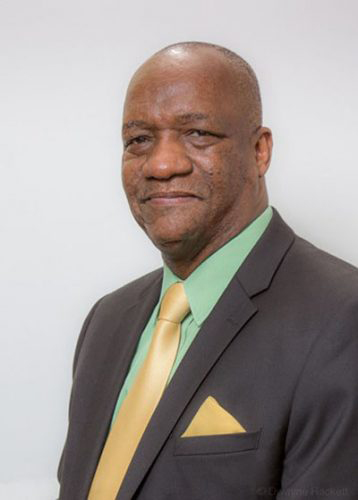President Irfaan Ali yesterday maintained that Opposition Leader Joseph Harmon must first recognise the PPP/C government as legitimate before they consult on the appointments of a substantive Chief Justice and Chancellor of the Judiciary.
“I know definitively who is the Leader of the Opposition and I know definitively who the President of Guyana is. I am sure Harmon definitively knows who also is the Leader of the Opposition is and who is the President,” Ali said yesterday when asked about the consultation, which is needed
“So the ball is in his court to do the right thing. And I’m hoping – I’m a very positive person – I’m hoping that very soon he will stop his reckless statements about the government and do what is right in the interest of the people of Guyana,” he added.
Efforts to contact Harmon yesterday for comment proved futile as calls to his mobile numbers went unanswered. Critics of Ali’s position, which has implications for other constitutional offices, have said that the constitution does not attach any preconditions to the two office holders meaningfully consulting with each other.
Article 127 (1) of the Constitution stipulates that “the Chancellor and the Chief Justice shall each be appointed by the President, acting after obtaining the agreement of the Leader of the Opposition.”
Guyana has not had a substantive Chief Justice since 2001, or a substantive Chancellor since 2005. Chancellor Yonette Cummings and Chief Justice Roxane George-Wiltshire have been acting in their positions for more than three years. Their predecessors, Justices Carl Singh and Ian Chang, both retired without being substantively appointed Chancellor and Chief Justice, respectively.
It was pointed out to Ali that notwithstanding his precondition for their consultation, the government had accepted a nomination from Harmon for members of the Local Government Commission. “There is a difference in the way the Local Government Commission is appointed [as compared to that] of the Chancellor and Chief Justice. Three is a parliamentary process in the case of the Commission and in the case of the Chancellor and Chief Justice, there has to be consultation directly between the President and the Leader of the Opposition,” Ali said.
In March of this year, Harmon said that he would support the appointments of both women in their respective capacities, as he called on Ali to appoint them.
“Irfaan Ali has to take steps to ensure those two women are confirmed in their jobs. I am prepared to do what is necessary to ensure that it happens,” Harmon had told an International Women’s Day Forum.
According to Harmon, the two women “must be confirmed in those positions as that is how they will be able to stand firm.” “Keeping people in acting positions is a way of controlling people,” he declared.
Harmon’s views on the appointments echoed those of current Vice President Bharrat Jagdeo, who, while serving as Opposition Leader in 2017 declared that it was the president who has to make the first move to resolve the decade-long failure to appoint a substantive Chancellor and Chief Justice.
In December of 2017, Jagdeo warned that he would not allow himself to be coerced into accepting nominees just to fix the situation. At this point Justices Cummings-Edwards and George had held the posts for nine months following a temporary arrangement between former President David Granger and Jagdeo.
Jagdeo, under whose tenure both Justices Singh and Chang were appointed in acting capacities, stressed at the time that there shouldn’t be a gap in the leadership at the level of the judiciary.
Caribbean Court of Justice (CCJ) President Justice Adrian Saunders and his predecessor Sir Dennis Bryon have publicly described the situation as unacceptable.
Sir Dennis, the then CCJ president, while delivering the keynote address at 37th Annual Bar Association Dinner in November 2017, had said that it was disappointing that no substantive Chancellor has been appointed after Justice Desiree Bernard’s departure and noted that having both offices being led by judges acting in the respective capacities is “a most unfortunate state of affairs.”
He had bemoaned the inability of successive presidents and opposition leaders to agree on appointing a substantive Chancellor of the Judiciary, while warning that prolonged acting appointments pose a genuine “risk” to the promise to citizens of an independent and impartial judiciary.
Calling Guyana’s failure to make substantive judicial appointments a “significant stain” on the rule of law, then President-Designate of the CCJ Justice Adrian Saunders had said in May 2018 that the situation was inexcusable.








